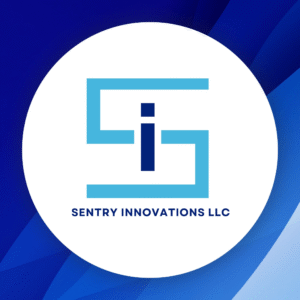Unlocking Opportunities: Your Guide to Obtaining a U.S. Green Card
Obtaining a U.S. Green Card is a significant milestone for many individuals seeking to live and work permanently in the United States. This guide aims to provide a comprehensive overview of the various pathways to securing a Green Card, the application process, and the essential requirements involved. Whether you are looking to reunite with family, pursue employment opportunities, or seek refuge, understanding the intricacies of the Green Card system can help you unlock new opportunities in your life.
Understanding Green Card Basics
A Green Card, officially known as a Permanent Resident Card, grants foreign nationals the right to live and work in the United States on a permanent basis. It serves as proof of your legal status and is a crucial step towards becoming a U.S. citizen. The card is valid for ten years and can be renewed, but it is essential to maintain your permanent resident status by adhering to U.S. laws and regulations.
Green Card holders enjoy numerous benefits, including the ability to work without restrictions, access to certain government benefits, and the opportunity to sponsor eligible relatives for their own Green Cards. However, it is important to note that Green Card holders are not U.S. citizens and do not have the right to vote in federal elections.
Eligibility Categories
Eligibility for a Green Card can be categorized into several distinct pathways, each with its own set of requirements and processes. Understanding these categories is crucial for determining the best route for your situation. The main categories include family-based, employment-based, diversity lottery, and humanitarian options such as asylum and refugee status.

Each category has specific criteria that applicants must meet, and the process can vary significantly depending on the chosen pathway. It is advisable to thoroughly research each category to identify which one aligns with your personal circumstances and goals.
Family-Based Green Cards
Family-based Green Cards are one of the most common ways to obtain permanent residency in the U.S. They are available to immediate relatives of U.S. citizens, including spouses, children, and parents. Additionally, other family members, such as siblings and adult children, may also qualify under different preference categories.
The process typically begins with a U.S. citizen or lawful permanent resident filing a petition on behalf of their relative. Once the petition is approved, the relative can apply for a Green Card. The waiting times for family-based Green Cards can vary significantly based on the relationship and the applicant's country of origin.
Immediate Relatives
Immediate relatives of U.S. citizens are given priority in the Green Card process. This category includes spouses, unmarried children under 21, and parents of U.S. citizens. There is no annual cap on the number of Green Cards issued in this category, allowing for a faster processing time.
For spouses, the process involves submitting Form I-130, Petition for Alien Relative, followed by Form I-485, Application to Register Permanent Residence or Adjust Status. Documentation proving the legitimacy of the marriage is also required, such as marriage certificates and joint financial records.
Family Preference Categories
Family preference categories include more distant relatives, such as siblings and married children of U.S. citizens, as well as children of lawful permanent residents. These categories are subject to annual caps, leading to longer waiting periods for applicants.
For instance, siblings of U.S. citizens fall under the fourth preference category, which often experiences significant backlogs. Applicants must remain patient and prepared for a lengthy process, as the wait can extend for several years, depending on the applicant's country of origin.
Employment-Based Green Cards
Employment-based Green Cards are designed for individuals who possess specific skills or qualifications that are in demand in the U.S. labor market. This category is divided into several preference levels, each catering to different types of workers, including skilled workers, professionals, and unskilled laborers.

The process typically begins with an employer filing a labor certification application to demonstrate that there are no qualified U.S. workers available for the position. Once approved, the employer can file Form I-140, Immigrant Petition for Alien Worker, on behalf of the employee.
EB-1: Priority Workers
The EB-1 category is reserved for individuals with extraordinary abilities in their field, outstanding professors and researchers, and certain multinational executives and managers. This category does not require a labor certification, making it a faster option for eligible individuals.
Applicants must provide extensive documentation showcasing their achievements, such as awards, publications, and evidence of their contributions to their field. This category is highly competitive, and applicants must demonstrate a significant level of expertise.
EB-2: Professionals with Advanced Degrees
The EB-2 category is for professionals holding advanced degrees or individuals with exceptional abilities in their field. Applicants must have a job offer from a U.S. employer and, in most cases, a labor certification is required.
Individuals seeking a National Interest Waiver may bypass the labor certification process if they can demonstrate that their work benefits the U.S. significantly. This option is particularly appealing for those in fields such as science, technology, and healthcare.
Diversity Visa Lottery
The Diversity Visa Lottery is a unique program aimed at increasing immigration from countries with low rates of immigration to the United States. Each year, the U.S. government randomly selects individuals from eligible countries to receive Green Cards, providing a pathway for those who may not qualify through other means.
To participate, applicants must meet specific eligibility criteria, including having a high school education or equivalent and at least two years of work experience in a qualifying occupation. The application process is straightforward, but it is crucial to submit your application during the designated registration period.
Asylum and Refugee Status
Individuals fleeing persecution or violence in their home countries may qualify for a Green Card through asylum or refugee status. Asylum seekers must apply for asylum within one year of arriving in the U.S., while refugees are typically referred to the U.S. by the United Nations or other organizations.
Once granted asylum or refugee status, individuals can apply for a Green Card after one year. This pathway provides a vital opportunity for those seeking safety and stability in the U.S. and is an essential aspect of the country's commitment to humanitarian protection.
Green Card Application Process
The Green Card application process can be complex and requires careful attention to detail. It typically involves several steps, including filing the appropriate forms, gathering supporting documents, and attending interviews. Understanding each step is crucial for a successful application.
Applicants must first determine their eligibility category and gather the necessary documentation to support their application. This may include proof of relationship for family-based applications or employment verification for employment-based applications. Once the forms are completed and submitted, applicants will receive notifications regarding their case status.
Form I-485 Overview
Form I-485, Application to Register Permanent Residence or Adjust Status, is a critical component of the Green Card application process. This form is used by individuals already in the U.S. who wish to adjust their status to that of a permanent resident.
Completing Form I-485 requires providing personal information, details about your immigration history, and supporting documentation. It is essential to ensure that all information is accurate and complete to avoid delays or denials in the application process.
Supporting Documents Needed
Along with Form I-485, applicants must submit various supporting documents, including proof of eligibility, identification, and any required fees. Common documents include birth certificates, marriage licenses, and financial records to demonstrate the ability to support oneself.
It is advisable to carefully review the specific requirements for your eligibility category to ensure that you include all necessary documentation. Missing documents can lead to delays or complications in the processing of your application.
Medical Examination Requirements
As part of the Green Card application process, applicants are required to undergo a medical examination conducted by an approved physician. This examination is designed to ensure that applicants do not have any communicable diseases or health conditions that could pose a public health risk.
The physician will complete Form I-693, Report of Medical Examination and Vaccination Record, which must be submitted with the Green Card application. It is essential to schedule this examination early in the process, as it may take time to obtain the necessary vaccinations and complete the evaluation.
Biometrics Appointment
After submitting the Green Card application, applicants will receive a notice for a biometrics appointment. During this appointment, applicants will have their fingerprints, photographs, and signatures taken for background checks and identity verification.
Interview Preparation Tips
Many Green Card applicants are required to attend an interview as part of the application process. This interview is an opportunity for immigration officials to verify the information provided in the application and assess the applicant's eligibility.
To prepare for the interview, applicants should review their application thoroughly and be ready to answer questions about their background, relationships, and intentions in the U.S. It is also helpful to gather any additional documentation that may support the application, such as financial records or evidence of a bona fide marriage.
Common Application Mistakes
Applying for a Green Card can be a daunting task, and many applicants make common mistakes that can lead to delays or denials. One frequent error is providing incomplete or inaccurate information on the application forms.
Another common mistake is failing to submit the required supporting documents. It is crucial to carefully review the application instructions and ensure that all necessary documentation is included. Seeking assistance from a qualified immigration professional can help mitigate these risks and improve the chances of a successful application.
Processing Times and Fees
The processing times for Green Card applications can vary widely depending on the eligibility category, the applicant's country of origin, and the current workload of U.S. Citizenship and Immigration Services (USCIS). Some applications may be processed in a matter of months, while others can take years.
In addition to processing times, applicants should also be aware of the associated fees. These fees can include application fees, biometrics fees, and medical examination costs. It is essential to budget for these expenses and ensure that all fees are paid in a timely manner to avoid delays in processing.
Maintaining Your Green Card
Once you have obtained your Green Card, it is essential to understand the responsibilities that come with it. Green Card holders must comply with U.S. laws and regulations, including filing taxes and maintaining a permanent residence in the U.S.
Failure to adhere to these requirements can result in the loss of permanent resident status. It is also important to keep your Green Card updated and renew it as necessary to avoid any issues with your legal status in the U.S.
Path to U.S. Citizenship
For many Green Card holders, the ultimate goal is to become a U.S. citizen. After holding a Green Card for a specified period, typically five years, individuals may be eligible to apply for naturalization. This process involves submitting Form N-400, Application for Naturalization, and meeting various requirements, including demonstrating good moral character and proficiency in English.
Becoming a U.S. citizen offers numerous benefits, including the right to vote, eligibility for federal jobs, and the ability to sponsor relatives for immigration. It is a significant step towards fully participating in American society and enjoying the rights and privileges that come with citizenship.
Resources and Support Organizations
Numerous resources and organizations are available to assist individuals navigating the Green Card application process. Nonprofit organizations, community groups, and legal aid services often provide valuable information, guidance, and support to applicants.
These organizations can help individuals understand their rights, prepare their applications, and connect with legal professionals who specialize in immigration law. Utilizing these resources can significantly enhance the chances of a successful application and provide much-needed support throughout the process.
Legal Assistance Options
Seeking legal assistance can be a wise decision when applying for a Green Card. Immigration law can be complex, and having an experienced attorney can help navigate the intricacies of the application process. Attorneys can provide personalized guidance, assist with paperwork, and represent applicants during interviews.

When selecting an immigration attorney, it is essential to choose someone with a solid track record and positive reviews from previous clients. Many attorneys offer free consultations, allowing potential clients to assess their options before committing to legal representation.
Staying Informed on Immigration Policies
Immigration policies in the U.S. can change frequently, impacting the Green Card application process and eligibility requirements. Staying informed about these changes is crucial for applicants to ensure they are following the most current guidelines.
Regularly checking the USCIS website, subscribing to immigration-related newsletters, and participating in community forums can help individuals stay updated on the latest developments in immigration law and policy. Being proactive in seeking information can empower applicants and help them navigate the process more effectively.
Success Stories and Testimonials
Hearing success stories from individuals who have successfully obtained their Green Cards can be inspiring and motivating. Many applicants have faced challenges and obstacles along the way but ultimately achieved their goal of permanent residency in the U.S.
These testimonials often highlight the importance of perseverance, thorough preparation, and seeking assistance when needed. Learning from the experiences of others can provide valuable insights and encouragement for those embarking on their own Green Card journey.
In conclusion, obtaining a U.S. Green Card is a multifaceted process that requires careful planning, attention to detail, and a thorough understanding of the various pathways available. By familiarizing yourself with the eligibility categories, application procedures, and requirements, you can take significant steps toward unlocking new opportunities in the United States. Whether you are seeking family reunification, employment opportunities, or safety from persecution, the journey to permanent residency can lead to a brighter future.
Your Journey Made Simple with Sentry Innovations LLC
Don't let the complexities of immigration stand in your way. At Sentry Innovations, we specialize in turning challenges into opportunities. Our dedicated experts offer personalized consulting services designed to streamline the process, giving you confidence every step of the way.
Your dreams are within reach—let us help you make them a reality. Discover how our immigration consulting services can work for you. Contact us today!

